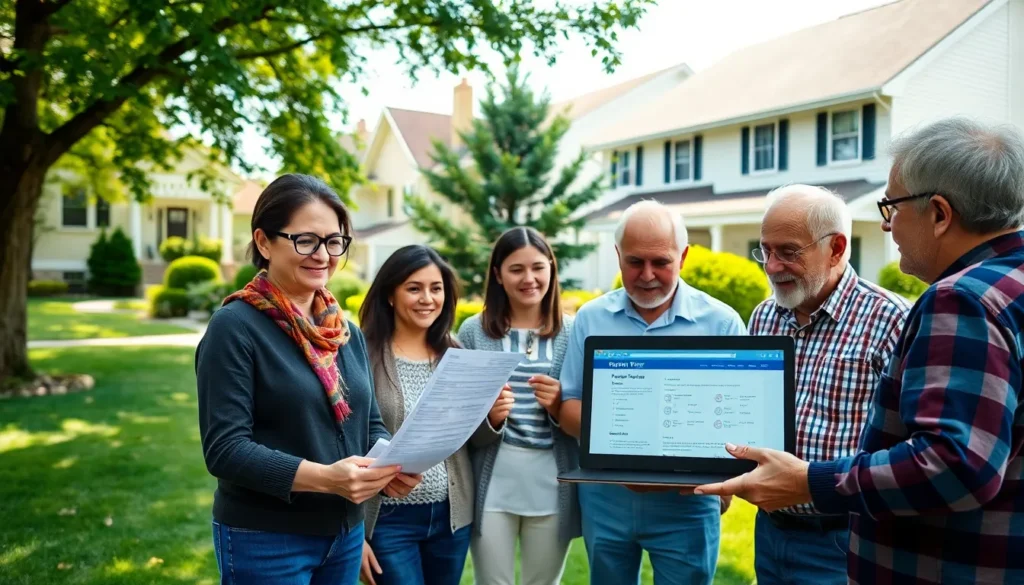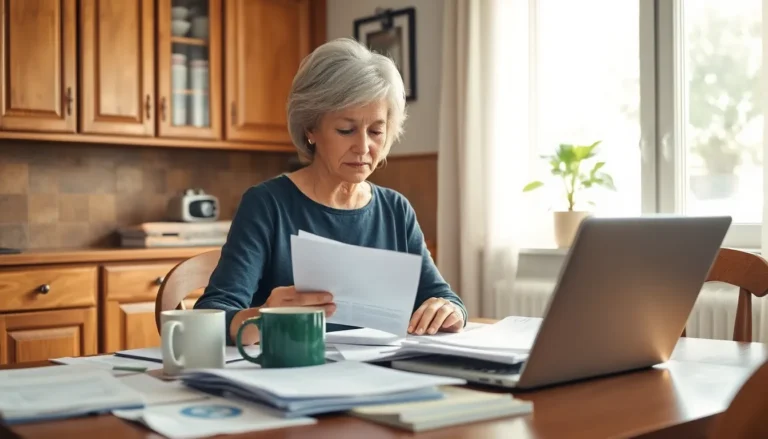Table of Contents
ToggleProperty tax payment is a crucial aspect of homeownership that often flies under the radar. For many, it’s just another bill to manage, but understanding its importance can lead to better financial decisions and community involvement. Property taxes fund essential services like schools, roads, and public safety, making them a vital part of local economies.
Navigating the complexities of property tax payment can be daunting. From assessing property value to understanding tax rates, homeowners face a myriad of factors that can impact their financial responsibilities. With the right knowledge and strategies, they can ensure timely payments and potentially save money in the long run.
Understanding Property Tax Payment
Property tax payments are crucial for supporting community services. Understanding property taxes helps homeowners manage their finances effectively.
What Is Property Tax?
Property tax represents a levy imposed by governments on real estate properties. This tax funds essential services, such as infrastructure, education, and public safety. Property owners pay taxes based on property value and local tax rates. Each year, local governments assess properties to determine their market value, which directly influences the tax amount owed.
How Property Taxes Are Calculated
Property taxes are calculated using a straightforward formula:
- Property Assessment: Local assessors evaluate a property’s market value, considering factors like location and property characteristics.
- Tax Rate: Governments set a tax rate, often expressed as a percentage of the assessed value. Tax rates vary by jurisdiction and can change annually.
- Calculation: Multiply the assessed value by the tax rate to determine the annual property tax owed.
For example, if a property has an assessed value of $300,000 and the tax rate is 1.2%, the annual property tax is $3,600. Homeowners can appeal assessments they believe are unfair, potentially lowering their tax liability.
Importance of Timely Payment

Timely property tax payment is crucial for homeowners, affecting both their financial standing and community services. Understanding the consequences of late payment and the benefits of on-time payment can enhance homeowners’ financial management.
Consequences of Late Payment
Late property tax payments trigger significant penalties. Homeowners may incur interest charges that compound over time, increasing their overall liability. They face potential liens against their property, which can lead to foreclosure if unresolved. Additionally, local governments might initiate legal action to recover outstanding debts, resulting in costly court fees. Disruption in community funding can also occur, impacting essential services residents rely on.
Benefits of Paying on Time
Paying property taxes on time fosters financial stability. Homeowners avoid penalties and interest charges, saving money in the long run. Consistent, timely payments maintain a good standing with local authorities, reducing the risk of property liens. On-time payments support vital community services, reinforcing the infrastructure and public resources that benefit all residents. Furthermore, timely payment demonstrates financial responsibility, positively influencing credit scores and future borrowing capacity.
Methods of Payment
Property tax payments can be made through various methods, allowing homeowners to choose what works best for them. Understanding these options ensures timely and accurate payment of taxes.
Acceptable Payment Methods
- Direct Debit: Homeowners can set up automatic payments from their bank accounts, ensuring timely tax payments while avoiding missed deadlines.
- Credit/Debit Card: Many jurisdictions allow payments via credit or debit cards, providing flexibility for those who prefer this method. A convenience fee may apply.
- Checks: Writing a check remains a standard method. Homeowners should ensure the check is mailed early enough to meet deadlines and avoid penalties.
- In-Person Payments: Local tax offices often accept in-person payments. Cash, checks, or cards may be accepted, depending on the office.
- Mobile Payment Apps: Some municipalities accept payments through mobile apps, enhancing convenience for homeowners who prefer digital transactions.
Online vs. Offline Payments
Online Payments: Online payment options offer convenience, allowing homeowners to pay property taxes from anywhere with internet access. Most local government websites provide secure payment portals. Homeowners can track payment status and history, simplifying the management of tax records.
Offline Payments: Offline methods provide alternative options for those who prefer traditional payment methods. Paying in person or mailing checks caters to homeowners who may not have access to the internet or prefer handling payments directly. Homeowners should consider their comfort level and security when choosing between online and offline methods.
Common Challenges in Property Tax Payment
Homeowners encounter several challenges when managing property tax payments. Understanding these challenges helps them navigate their obligations effectively.
Miscalculations and Disputes
Miscalculations in property assessments often lead to disputes between homeowners and local authorities. Tax assessors may overvalue properties, resulting in inflated tax bills. Homeowners can challenge these valuations through formal appeals, but this process requires extensive documentation and a clear understanding of assessment methodologies. It’s essential for homeowners to review their property assessments annually and gather evidence to support their claims, such as recent sales of comparable properties in their area. Successful resolution of disputes can lead to lower tax liabilities and ensure fair taxation for homeowners.
Financial Hardships
Financial hardships significantly impact homeowners’ ability to pay property taxes on time. Factors such as job loss, increased living expenses, or unexpected medical bills can strain budgets. Homeowners facing these difficulties should explore available assistance programs, such as state-funded property tax relief initiatives or deferment options. Additionally, communicating with local tax offices may provide potential solutions, like payment plans that accommodate their financial situations. Timely action in addressing financial challenges can prevent penalties and preserve homeownership.
Property tax payments are a crucial aspect of homeownership that directly impacts both individual finances and community welfare. By understanding the intricacies of property tax calculations and the importance of timely payments, homeowners can navigate their obligations more effectively. Embracing available payment options and staying informed about assessment processes empowers homeowners to manage their tax responsibilities confidently.
Moreover addressing challenges proactively can prevent financial strain and support long-term homeownership. Ultimately, responsible property tax management not only enhances personal financial health but also contributes to the overall vitality of the community.







